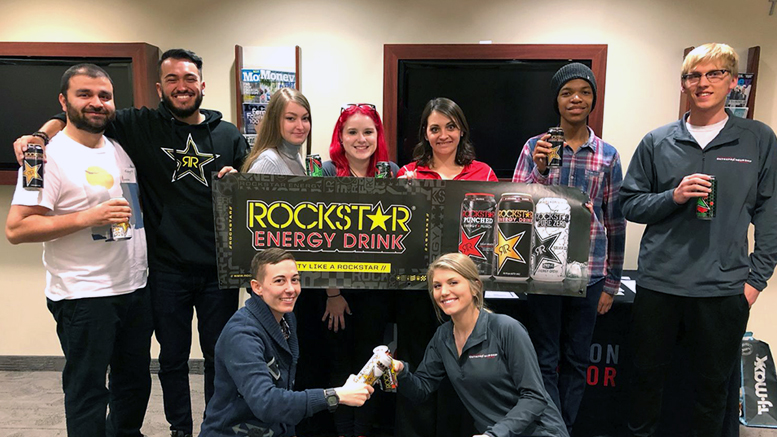By: Mike Rhodes—
Muncie, IN—A group of Ball State students spent 24 hours straight coming up with creative ideas on how to help the Muncie community.
The event was titled the Cardinal Hackathon and was hosted by Ball State’s Collegiate Entrepreneurs’ Organization (CEO), and held at the Innovation Connector from 7pm Friday, March 22nd to 7am Saturday, March 23rd. (24 continuous hours.) Krystal Geyer, assistant director of Ball State’s Entrepreneurship Center is the faculty advisor for CEO.
Ted Baker, executive director of the Innovation Connector said, “We were pleased to host the hackathon at the Innovation Connector. The Innovation Connector is a place of connection and a place to share ideas, so our facility was the perfect place to host this unique event.”
Now you might think from the name of the event, participants were spending an all-nighter hacking into local corporate networks and creating all sorts of digital chaos.
Nothing could be further from the truth.
The students spent 24 hours of their time coming up with potential ideas/solutions to help the community.
Phil Tevis of Flatland Resources and Bill Lett of Elm Street brewery kicked things off with a discussion about issues and problem areas in Muncie, and also acted as judges for the students’ final presentations. Some issues discussed included: retaining students in Muncie after they graduate, affordable housing in Muncie, attracting new businesses, employee retention and more.
On the positive side, Lett told the students he felt Muncie had a lot to offer. “I think Muncie is actually a good town to be in,” he said. “It’s a good town to do things. It’s not expensive to live here. You can do many things in a town like Muncie that’s not super expensive to live in. There’s also a lot of talent around Muncie. It’s a pretty interesting place to be, once you get in the middle of it.”
Idea: The Muncie Service Learning Project
1st place went to Aaron Best and Rashad J. Carter for their “Muncie Service Learning Project.” Best described their idea for the project as one that combines learning with community service. “Our idea would be to extend the program to high school and Ball State students who may want to do labor intensive jobs for credits through school,” he said. “It would be much like an internship, but you wouldn’t have to leave Muncie and would only have to do it during class time.”
For example, let’s say Ball State or another entity purchased or donated a dilapidated home in Muncie. A construction management student could go to the home and work on fixing it up. An interior design student could attempt to make the inside look better. A telecommunications student could try and produce an HDTV style program, documenting the work on the home as it progresses. This would give the student real-life experience in filming. Best said, “Students who then participate in the Service Learning Project might have more of a connection with the community…and might feel they had a role in improving the community through their understanding that houses were being changed and the community is growing.

Aaron Best and Rashad J. Carter look over the plans for their “Muncie Service Learning” project. Photo by: Mike Rhodes
Idea: TECH-OLLAB
Huseyin Ergin, Brandi Lambertson, Natasha Lambertson, and Kyli Penrod came up with an idea they dubbed: TECH-OLLAB. Their project idea tackled the problem of retaining college graduates within the Muncie-Delaware County area. They also wanted to increase awareness of specific technology skill-sets and opportunities in the area.
Their solution was to develop a program through structured partnerships between local companies in need of specific skill sets and Ball State capstone courses.
For more information on the Ball State Collegiate Entrepreneurs’ Organization (CEO) please visit:
https://www.bsu.edu/academics/centersandinstitutes/entrepreneurship/student-experience/collegiate-entrepreneurs-organization
For more information on the Innovation Connector, contact Alexis Dishman, akdishman@innovationconnector.com or call 765.285.4900.




